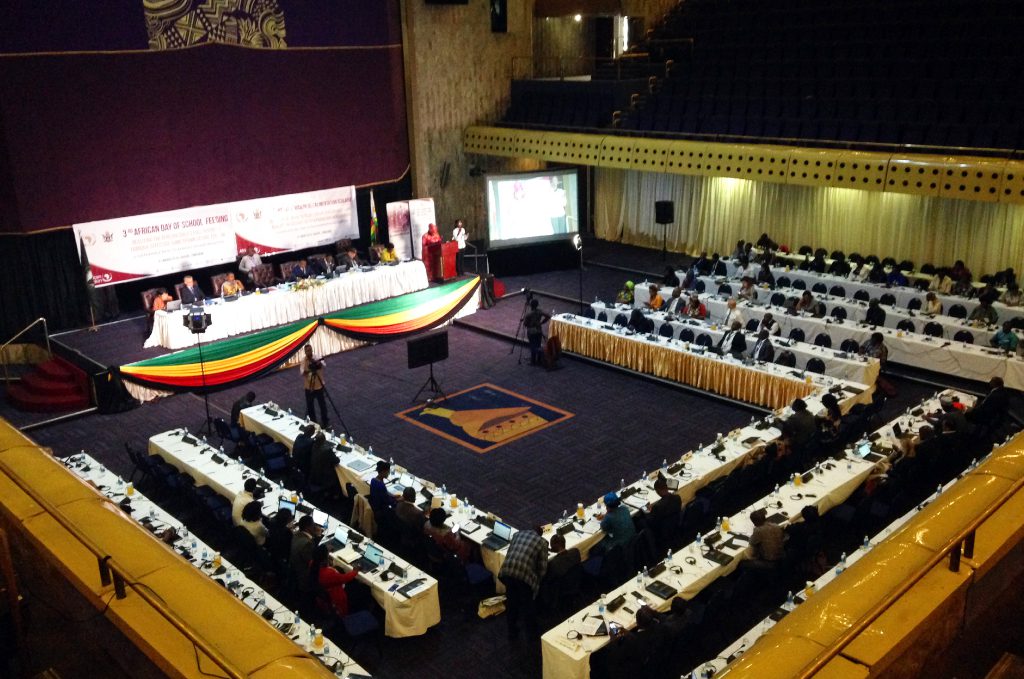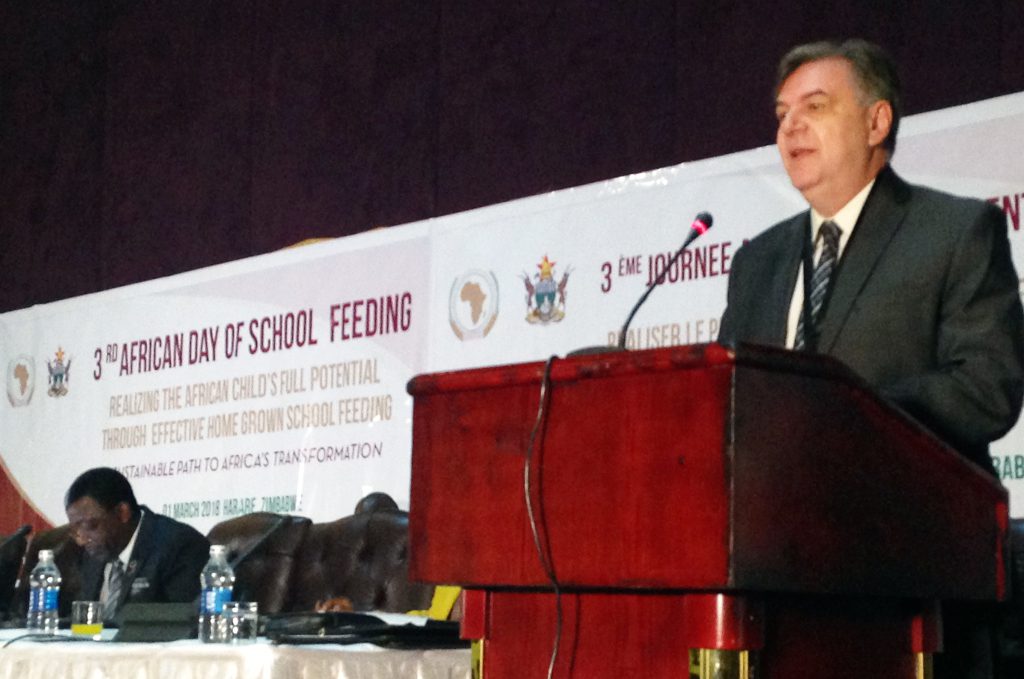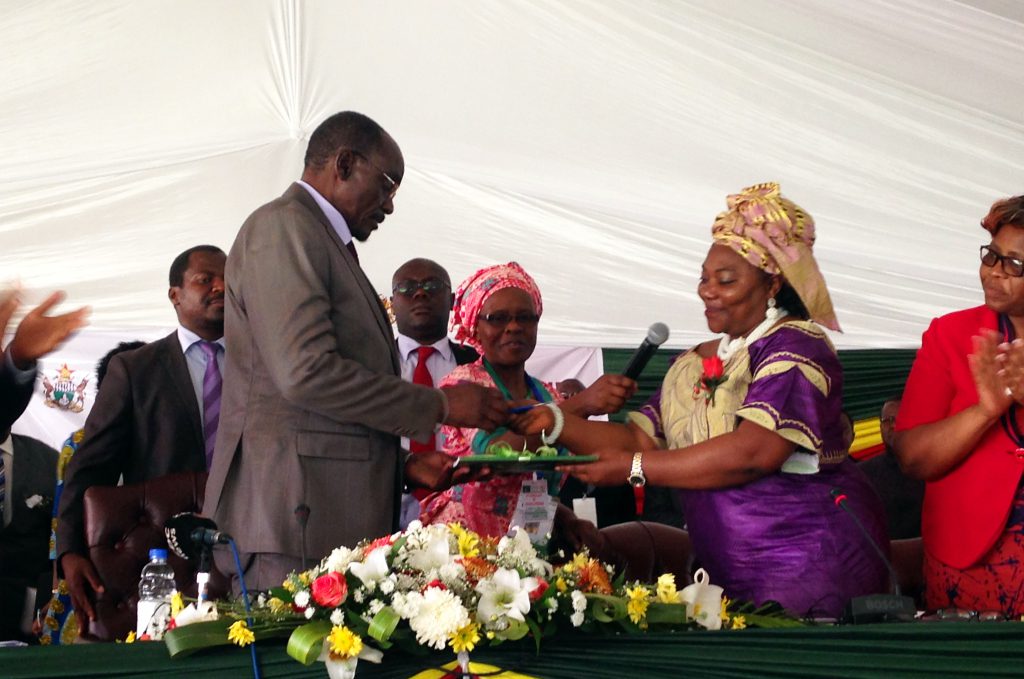
Under the theme “Enabling governance to advance African children and youth full potential through promoting sustainable school feeding programmes”, the African Union celebrated the 3rd African Day of School Feeding on March 1st. This year’s official event took place in Zimbabwe, while simultaneous national and sub-national celebrations took place throughout the continent. The date marks Africa’s commitment to promote an enabling environment for school feeding policymaking and governance.
From February 27 to March 1st, a series of discussions were held on the importance of implementing school feeding programmes around the African continent as a means to potencialise the education level and increase students enrollment and retention in schools.
The event received substantial support from the host government, the United Nations World Food Programme (WFP), the United Nations Educational, Scientific and Cultural Organisation (UNESCO) and UNESCO-International Institute for Capacity Building in Africa (UNESCO-IICBA), the Food and Agricultural Organisation of the United Nations (FAO), United Nations Children Fund (UNICEF) and private sector.
Prof. Sarah Anyang Agbor, African Union Commissioner for Human Resources, Science and Technology, stated: “Home grown school feeding is one of the key initiatives and efforts to solve the challenges faced with the quality universal school enrolment in Africa, that help the children from the poorest households and children who live in difficult areas to have access to quality education in a safe and conducive environment. The African Union further commits to ensure children are well nourished, to guarantee their ability to concentrate and learn, and ensuring sustainable source of food supply through increasingly involving local agricultures support, engaged in efforts to intensify its support to member states in the design and implementation of national, innovative school feeding programmes”.

The WFP Centre of Excellence against Hunger Director, Daniel Balaban, affirmed at the event: “Many challenges remain ahead for the effective implementation of programmes, and point to the need for greater financing into national budgets, the realization of cost analysis, better integration of nutrition and an overall integrated approach of these actions”.
The event in Zimbabwe brought to evidence AU member states’ good practices for setting school feeding in the national political agenda. It also promoted discussions on multi-sectoral mechanisms to include school feeding into national development plans. To this end, the study “Sustainable School Feeding across the African Union” was launched and its recommendations discussed among participants, as well as the establishment of an AU School Feeding Cluster.
The launch of the study is the result of a process that started back in 2015, when the former Commissioner Dr. Paul Ikounga led a delegation from AU member states representatives to Brazil to learn about its experience in school feeding. It was during this visit that the idea to elaborate an AU study on the state of school feeding throughout the continent was proposed, as a first step to inform AU’s engagement with its member states in this area.

Context
As the African Union moves forward in the Agenda 2063, the Continental Education Strategy for Africa 2016-2025 (CESA 16-25), and the Sustainable Development Goals (SDGs), good practices and continued momentum are needed to ensure the promotion and sustainable governance of the progress goals. Since 2016, the African Union is promoting school feeding as a tool to contribute to socioeconomic indicators, given its cross-sectoral impacts in education, health, nutrition, and agriculture.
Evidence underlying the discussions during the official celebration of the African Day of School Feeding underscores that school feeding and, specifically, home-grown school feeding are not a cost, but rather an investment with potential to promote:
– Human capital development
– Increased access to income-generating activities
– Boosting of national food production
The African Day of School Feeding was created after a delegation from the African Union Commission undertook a study visit to Brazil to learn about the Brazilian multi-dimensional approach to home grown school feeding. Since then, the WFP Centre of Excellence against Hunger has been working in partnership with the African Union and the WFP Africa Office to support continental efforts to adopt school feeding as a tool to promote sustainable development.




